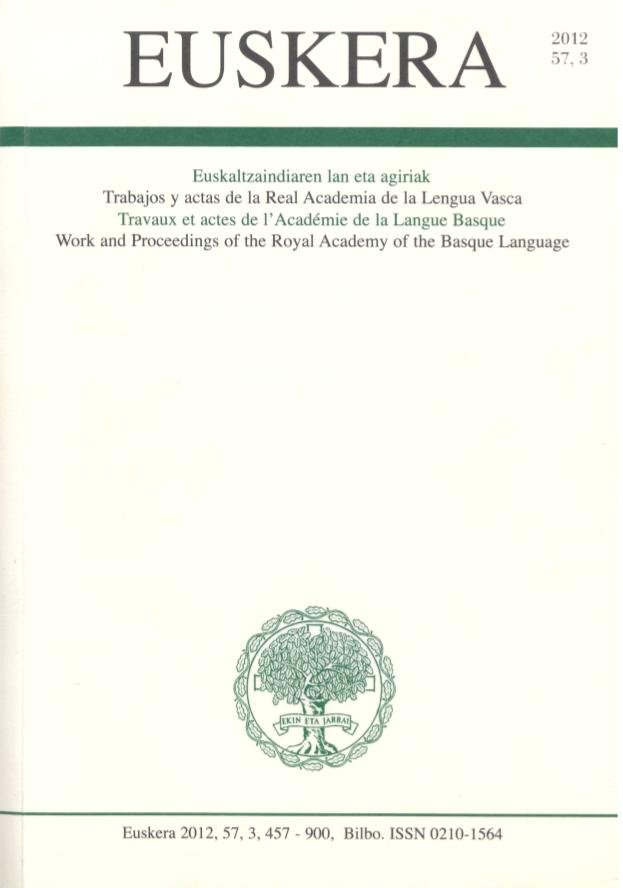"Araibar zalduna" tradizioan sustraiturik (Eusebio Erkiagararen mendeurren-jardunaldia)
DOI:
https://doi.org/10.59866/eia.v57i3.174Keywords:
Ewd living, urban setting, stereotypical character, rural setting, virginity, good reputation, redemptionAbstract
Eusebio Erkiaga’s novel Araibar zalduna (1962) has its roots in tradition. Using techniques honed by novelists over half a century, it presents us with what was a wellknown worldview. However, there is a new component: he tackles a topic the tradition had kept hidden away. He places the main character in a city. What is not exemplary dominates the story: this occurs with the main character’s nature and the language used to tell the story. These components were enough to anger some Basque enthusiasts of the time: it seems they considered that the decorum shown by the Basque novel until then was being abandoned.
Downloads
Download data is not yet available.
Downloads
Published
2013-11-30
How to Cite
Toledo Lezeta, A. M. (2013). "Araibar zalduna" tradizioan sustraiturik (Eusebio Erkiagararen mendeurren-jardunaldia). Euskera Ikerketa Aldizkaria, 3(57), 543–570. https://doi.org/10.59866/eia.v57i3.174
Issue
Section
Research articles








